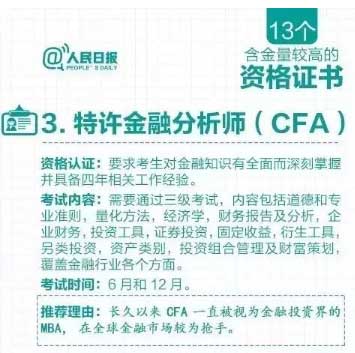经历2014年上半年忙碌的CFA备考和考试,眨眼就进入了下半年,根据上半年的一些数据表现和分析,哪些岗位会是下半年的理想岗位?你需不需要考虑一下现在的自己或者是将来的求职方向呢?我们一起来看看小编为你的解读!
2014 is turning into an equivocal year if you work in investment banking. If you’re in secondary sales and trading, it’s bad. If you’re in the primary capital markets businesses which generate the secondary products to be traded, it’s good.
So, assuming you have any choice in the matter, which front office banking business should you be pitching your resume to before 2014 is out? We suggest:
1. Equity Capital Markets jobs
Equity capital markets (ECM) bankers are to 2014 what CDO structurers were to 2006. Next time you see someone looking ragged with exhaustion but smug in the certainty that they will remembered with special fondness at bonus time, it will be someone in ECM.
Only this morning, Credit Suisse disclosed that its ECM revenues were up 30% in the second quarter. This followed a 47% increase at Goldman Sachs, a 44% increase at Bank of America and a 50% increase at Morgan Stanley over the same period. Equity capital markets jobs are a good place to be now. The only exceptions to this rule are ECM jobs at JPMorgan, where revenues fell 4% year-on-year in the second quarter, and Citigroup, where revenues plummeted 31%. Avoid.
2. M&A jobs
Mergers and acqusitions (M&A) is also the place to be between now and December. While M&A revenues haven’t increased as much as ECM revenues (Goldman’s Q2 M&A revenues were only 4%, Credit Suisse’s were down 4%) there is the promise of good things to come.
In the conference call accompanying its second quarter results, Goldman Sachs declared that it had ‘experienced a significant increase in announced M&A’ in the quarter and that even though this M&A hasn’t happened yet, its pipeline of future M&A was at the highest level since 2007. Citigroup was also bullish about M&A – even though its revenues declined 10% year-on-year in the second quarter. Morgan Stanley achieved a 25% increase in M&A revenues in the second quarter and CFO Ruth Porat said the bank has a ‘healthy backlog, particularly for large scale transactions.’
All things being equal, M&A bankers will be busy in the second half. If the revenues come through, they should also be well-rewarded.
3. Low-touch ‘traders’
Most banks have seen the future and the future involves shifting as much trading as possible onto low-touch systems and restricting client interaction with human traders to only those trades that are a) complex, b) large or c) involve high margin clients.
Hence, Deutsche Bank, for example, is hiring hundreds of low touch ‘traders’ to man the electronic systems at its growing Birmingham office. Credit Suisse is shunting as much of its FX trading as possible onto its e-trading platform. And JPMorgan has formed a whole new team to help persuade clients that electronic trading isn’t so bad.
Electronic traders are in for the second half of this year. Human traders are out. It’s worth noting that most of the people who work in electronic trading aren’t traders per se – many of them are technologists and quants instead.
4. Emerging market CDS traders
Now may not be the best time to be working as a trader or salesperson for Micex stocks, but it’s probably not a bad time to be selling emerging market credit default swaps.
Emerging market CDS trading rose 93% in the first quarter of 2014 as investors worried about events in Russia. Figures have yet to be released for the second quarter, but it seems likely that the increase was even more dramatic. In today’s results release, Credit Suisse said its emerging markets-related revenues had increased dramatically in July.
5. Securitization and mortgage trading
If you’re working for a bank with an established mortgage trading business, the second half of this year isn’t looking too bad. Credit Suisse said this morning the bank’s securitization professionals had a good June - so much so that Credit Suisse now proposes to go for growth in the European asset financing business. In the presentation accompanying its results, CS said there are also opportunities in private label securitization (securitized products that don’t conform to US criteria set down by the likes of Freddie Mac and Fannie Mae) as other banks start deleveraging.
Are securitisation jobs making a comeback? Credit Suisse wasn’t the only bank to cite growing revenues last quarter – Bank of America said its mortgage trading revenues are increasing too. Securitization professionals might be coming in from the cold.




 考试资讯
考试资讯
 发布时间:2013-10-09
发布时间:2013-10-09











 复制本文链接
复制本文链接 模拟题库
模拟题库

 221267
221267


































 >
>